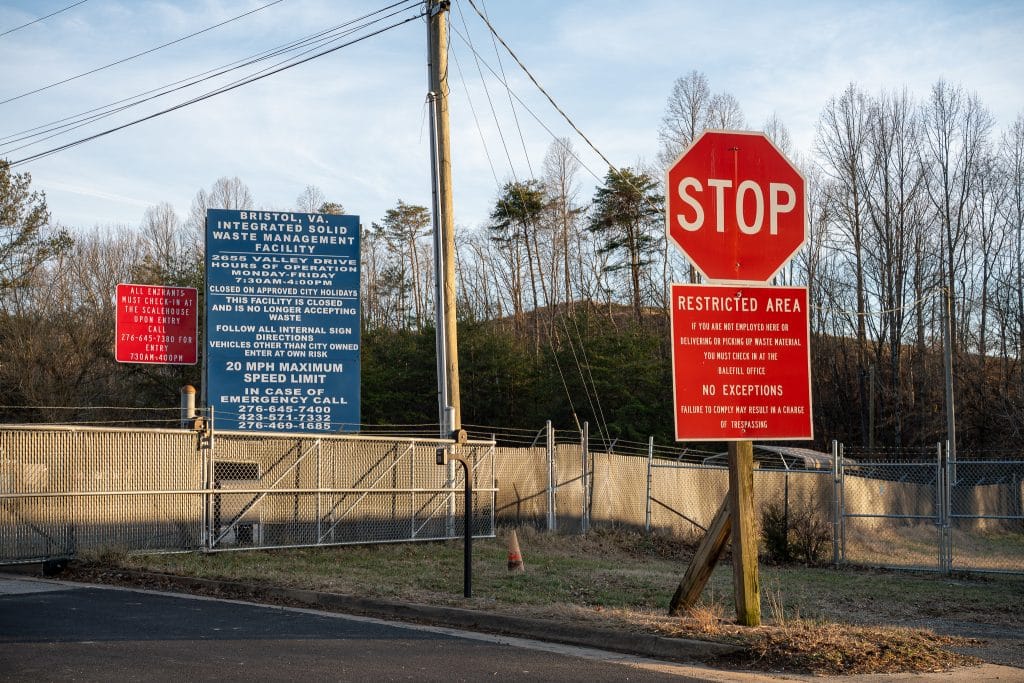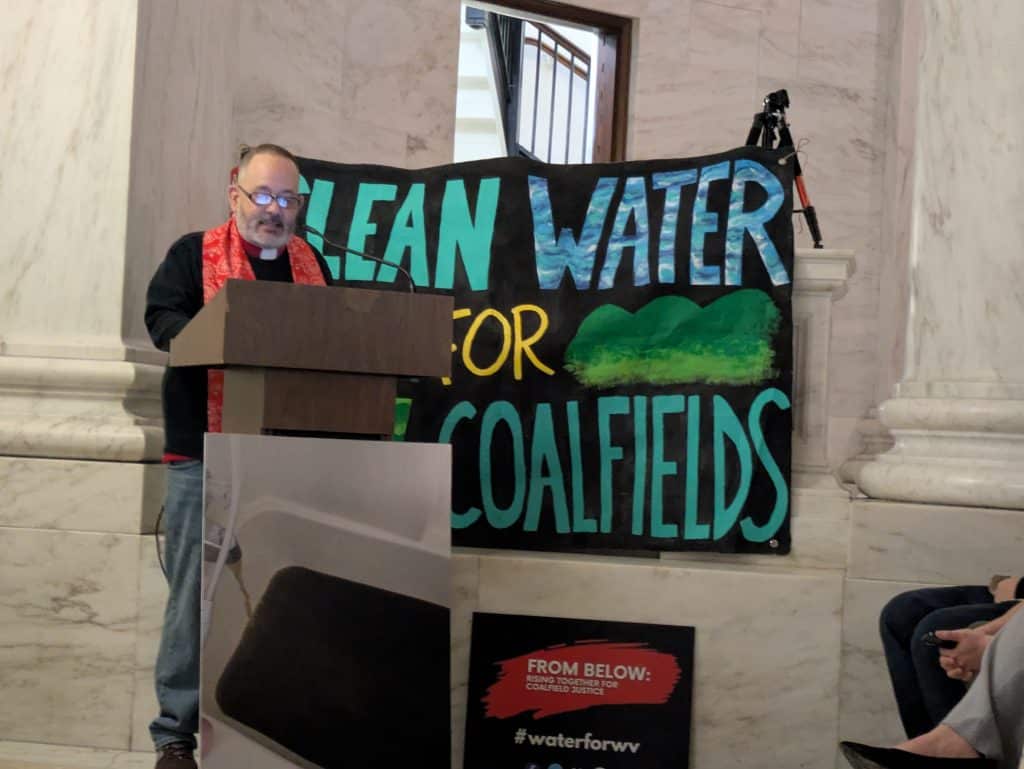States Tackle Environmental and Energy Issues
By Hannah McAlister and Kevin Ridder
Across the region, state legislators and governors are tackling energy and environmental issues that can have a profound impact on each state’s land, water and people. Here are a few of the bills and topics to follow in 2019.
Georgia
Session runs from Jan. 14 to early April.
The state established its first dedicated conservation trust fund, the Georgia Outdoor Stewardship Trust Fund, in November after a ballot initiative was supported by 83 percent of voters. Environmental nonprofit organization Georgia Conservancy plans to participate in the legislative process as lawmakers establish procedures to help the state properly use the fund.
Other key issues identified by Georgia Conservancy include opposing offshore oil and gas exploration, developing a sustainable oyster aquaculture industry, reinstating the electric vehicle tax credit and clarifying stream buffer regulations intended to keep pollution and runoff out of waterways. — H.M.
Kentucky
Session runs from Jan. 8 to March 29.
On Feb. 13, the state Senate passed S.B. 100, which would limit the amount of money utility companies pay Kentuckians for the excess energy produced through rooftop solar panels. The bill would affect customers who install solar after Dec. 31, 2019.
Utility companies state the bill is needed since they pay more for energy from ratepayers with solar panels than for energy the utilities produce themselves. But critics of S.B. 100 argue that it would stamp out the state’s already small solar industry by taking away cost-saving incentives to install panels.
Tom FitzGerald, director of the nonprofit environmental organization Kentucky Resources Council, told the Louisville Courier Journal that S.B. 100 was crafted by utilities for the purpose of “cornering the market on the sun.” The bill awaits decision in a House committee.
On Jan. 8, several representatives introduced H.B. 75 to amend a 2018 Kentucky workers’ compensation law stating that only specially licensed pulmonologists can diagnose black lung disease. This has prevented radiologists licensed to detect the disease with a chest x-ray from officially being able to diagnose, making it much more difficult for coal miners with the fatal, incurable condition to obtain state benefits. H.B. 75 would restore the ability of radiologists to diagnose the disease.
H.B. 16, introduced Jan. 8, would include affordability as a criterion for determining utility rates and establish reasonable rates as a policy of the commonwealth.
Introduced Jan. 10, H.B. 146, would make solar energy more accessible to people unable to afford high upfront costs by allowing third-party power purchase agreements.
H.B. 152, introduced Jan. 10, would eliminate the deduction for transportation expenses from coal severance taxes. All four of these bills await decision in committee. — K.R.
Maryland
Session runs from Jan. 9 to April 8.
On Feb. 8, 73 members of the Maryland General Assembly introduced H.B. 1158, the Clean Energy Jobs Act. The legislature failed to pass the bill in 2018 after opposition from utility companies.
The bill sets a target of powering Maryland with 100 percent renewables by 2040. Supporters say it will provide environmental and economic benefits by creating tens of thousands of jobs and investing billions of dollars in the state. Gov. Larry Hogan (R) has not commented on the bill, but announced support for “clean and renewable energy solutions and green energy jobs” in a Jan. 29 speech. The bill awaits decision in committee.— H.M.
North Carolina
Session runs from Jan. 30 to TBA.
Duke Energy may look to the General Assembly in 2019 to pass a bill allowing the monopoly utility to increase ratepayer bills to fund its $13 billion grid modernization proposal after state regulators struck down the proposal last summer. Duke’s plan was roundly criticized by legislators, the state attorney general and public interest advocates including Appalachian Voices, the publisher of this newspaper, for a litany of reasons including overburdening ratepayers.
On Jan. 31, lawmakers introduced H.B. 3, which would allow for a public vote in 2020 to amend the state constitution to restrict the use of eminent domain. The clause would limit property seizure to be only for public use, not for public benefit, and would guarantee a right of trial by jury in all condemnation cases. However, H.B. 3 would also allow public and private parties to seize any land “for the connection of any customer or customers.” The bill awaits decision in committee.
With the 2018 midterm elections, North Carolina Democrats have ended the veto-proof majorities held by Republicans in the House and Senate since 2013.
State Rep. Harry Warren (R) told North Carolina Health News that he plans to reintroduce a bill in February requiring state schools and child care centers to test for lead in drinking water, and respond if unsafe levels of lead are detected. Similar bills failed to pass in 2016 and 2017 after high levels of lead were found in an elementary school’s drinking water. For updates, visit appvoices.org/state-gov.— K.R.
Ohio
Session started on Jan. 7 and runs throughout the year.
In November, landowners and wind energy companies filed a lawsuit in a county court alleging that in 2014, the Ohio General Assembly unconstitutionally passed a law that restricts wind turbine setback, or distance, from adjacent properties, discouraging the development of wind energy.
The restriction was included without public input as an amendment to a budget bill, which the case claims violates a rule in the state constitution that bills only pertain to a single subject. In December, Ohio asked the court to dismiss the case.
In April 2017, the Ohio Senate attempted to include changes to the state’s wind turbine setback laws in H.B. 114, which would have weakened Ohio’s renewable energy standards, but legislation was ultimately stalled. Columbus law firm Bricker & Eckler LLP predicts that under new Gov. Mike DeWine, the General Assembly will again propose loosening Ohio’s renewable and energy efficiency standards.
The law firm also predicts the session will bring legislation regarding possible subsidies in response to FirstEnergy’s proposal to close two nuclear power plants. — H.M.
Pennsylvania
Session started on Jan. 1 and runs throughout the year.
On Jan. 8, Gov. Tom Wolf signed an executive order declaring that Pennsylvania will cut 80 percent of its net greenhouse gas emissions by 2050 from 2005 levels, with 26 percent by 2025.
To hit these targets, Wolf discussed controlling methane at existing oil and gas wells and Pittsburgh’s gas delivery system. Wolf also committed state agencies to work with his new GreenGov Council to improve energy efficiency across government operations.
— H.M.
South Carolina
Session runs from Jan. 8 to May 9.
The Environmental Bill of Rights (H. 3382) was introduced as a proposed amendment to the state constitution on Jan. 8. This enforces South Carolinians’ right to conserve and protect the environment, and grants local governments the power to enact laws and regulations that are more protective of the environment than those adopted by the state.
The Clean Energy Access Act (S. 332) was introduced in the Senate on Jan. 8. This bill achieves many goals of the 100 Days Clean Energy Agenda, an effort backed by a coalition of environmental and renewable energy groups, including making solar more accessible by loosening net metering restrictions. The bill is a companion of the S.C. Energy Freedom Act (H. 3659), which also aims to make solar more affordable for low- and moderate-income residents and ensure that customers are not penalized for using solar or energy efficiency.
S. 137, also introduced on Jan. 8, would offer economic incentives for regulated electric companies to hit certain benchmarks, including energy efficiency and the use of renewables. All of these bills were referred to committee. — H.M.
Tennessee
Session runs from Jan. 8 through late April.
According to nonprofit organization Tennessee Conservation Voters, the legislature may consider a bottle deposit-return bill, commonly called “TennCan.” Similar to programs in other states, TennCan aims to incentivize recycling by adding a 5 cent refundable deposit to all covered beverages.
The legislature may also consider a bill addressing lead in school drinking water, a bill protecting citizen legal action from large retaliatory lawsuits, and legislation allowing home- and business-owners to finance energy efficiency upgrades through an added charge on property taxes.
On Jan. 23, new Tennessee Gov. Bill Lee (R) ordered state executive departments to outline how they serve 15 rural, economically distressed counties by May 31 and recommendations for how the departments can improve by June 30. Lee often advocated for addressing rural poverty in rural areas on the campaign trail, including expanding rural broadband service. — K.R.
Virginia
Session runs from Jan. 9 to Feb. 23.
On Jan. 25, the State Senate passed S.B. 1695, which would allow utilities to seize right-of-ways on land that the Virginia Economic Development Authority certifies as a “qualified economic development site.” The bill awaited decision in a House committee as of Feb. 12.
A House subcommittee killed the Refund Act, H.B. 2645, which would have prohibited public utilities from making nonessential expenditures such as lobbying and blocked them from recovering costs from ratepayers if they over-purchase fuel.
On Jan. 24, a House subcommittee struck down H.B. 2503, which would have required the state to hold a hearing before approving fuel deals between affiliates of the same utility, as Dominion Energy did when it committed its subsidiary to buy gas from Dominion’s Atlantic Coast Pipeline.
On Jan. 28, a Senate committee killed a bill to promote residential and small-scale renewable energy in the commonwealth. The House version, H.B. 2329, was killed in committee on Jan. 31.
On Jan. 29, a House subcommittee killed two bills that would have established an environmental justice advisory council by law. One of the bills would have required state agencies to take environmental justice into consideration.
On Feb. 5, the House passed H.B. 2741, which would establish a rebate fund to increase access to efficiency and renewables to low-income families. The bill awaits decision in a Senate committee
Legislators were also moving forward with coal ash cleanup plans (read more here). For updates, visit appvoices.org/state-gov. — K.R.
West Virginia
Session runs from Jan. 9 to March 9.
After initially voting to add updated drinking water protections for 60 pollutants to S.B. 167, on Feb. 1 a State Senate committee removed those updated water standards from the bill. Instead, the committee set forth a process for updates that could lead to updated drinking water standards being passed in 2021. If the new water standards had passed, the bill would have updated West Virginia’s 1980s-era water quality rules to be consistent with 2015 federal standards. In November, the West Virginia Manufacturers Association argued that stronger water safeguards could hurt industry. The bill awaits a Senate vote.
On Jan. 8, a lobbyist for Atlantic Coast Pipeline lead developer Dominion Energy called on the legislature to condemn “rogue environmental groups” for stalling pipeline construction. This comes after a number of lawsuits have led to a halt of Atlantic Coast construction (read more here). The legislature has yet to take action on this. — K.R.
Editor’s Note: This article was updated on Feb. 14, 2019, to include information about Kentucky S.B. 100.
Related Articles
Latest News

Leave a comment
Your email address will not be published. Required fields are marked *





Leave a Comment